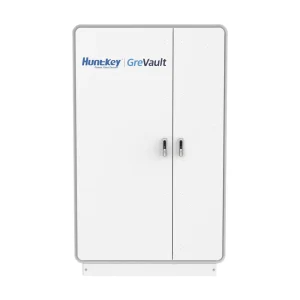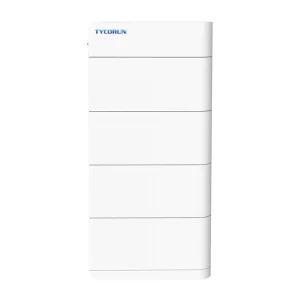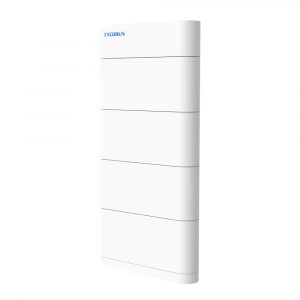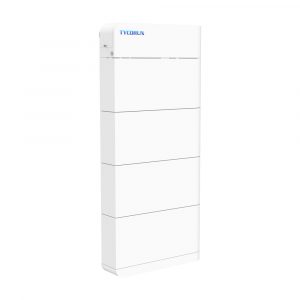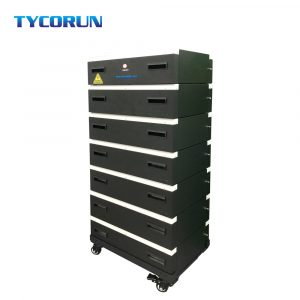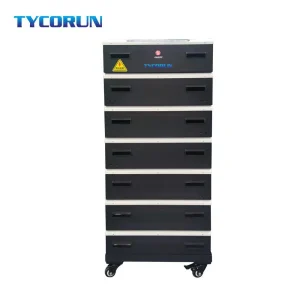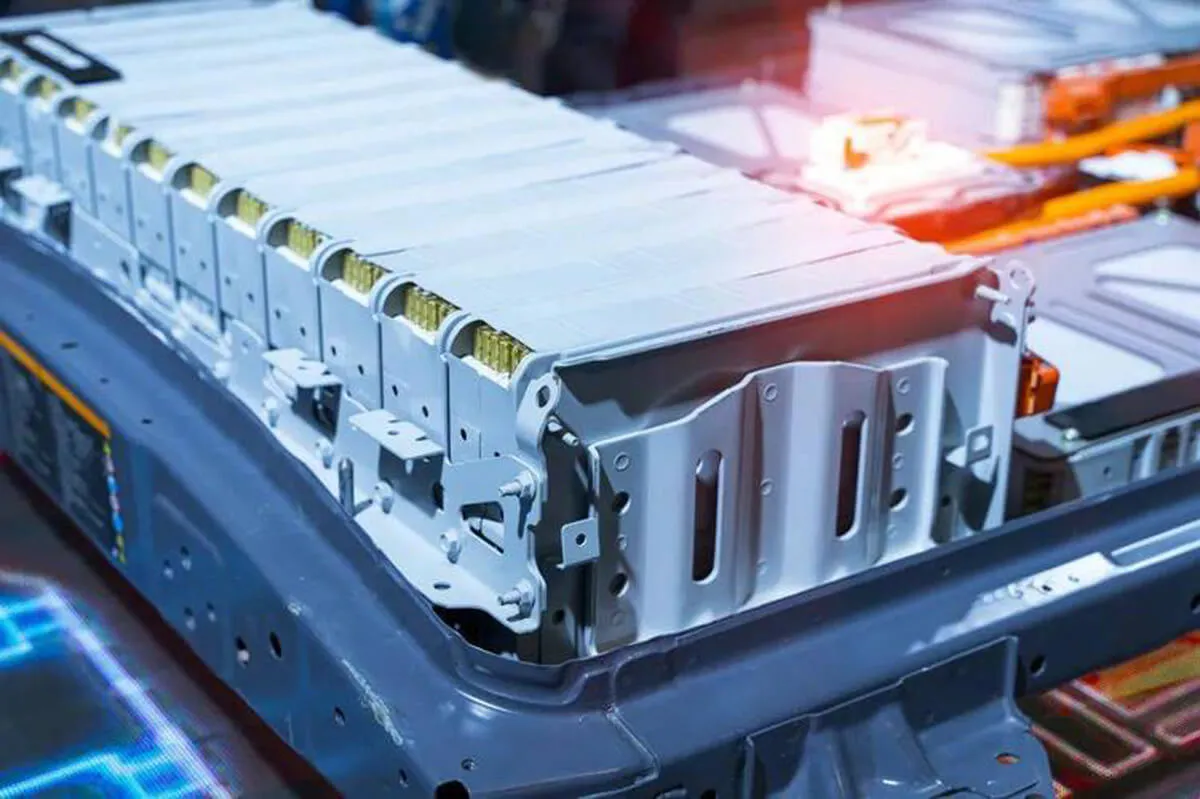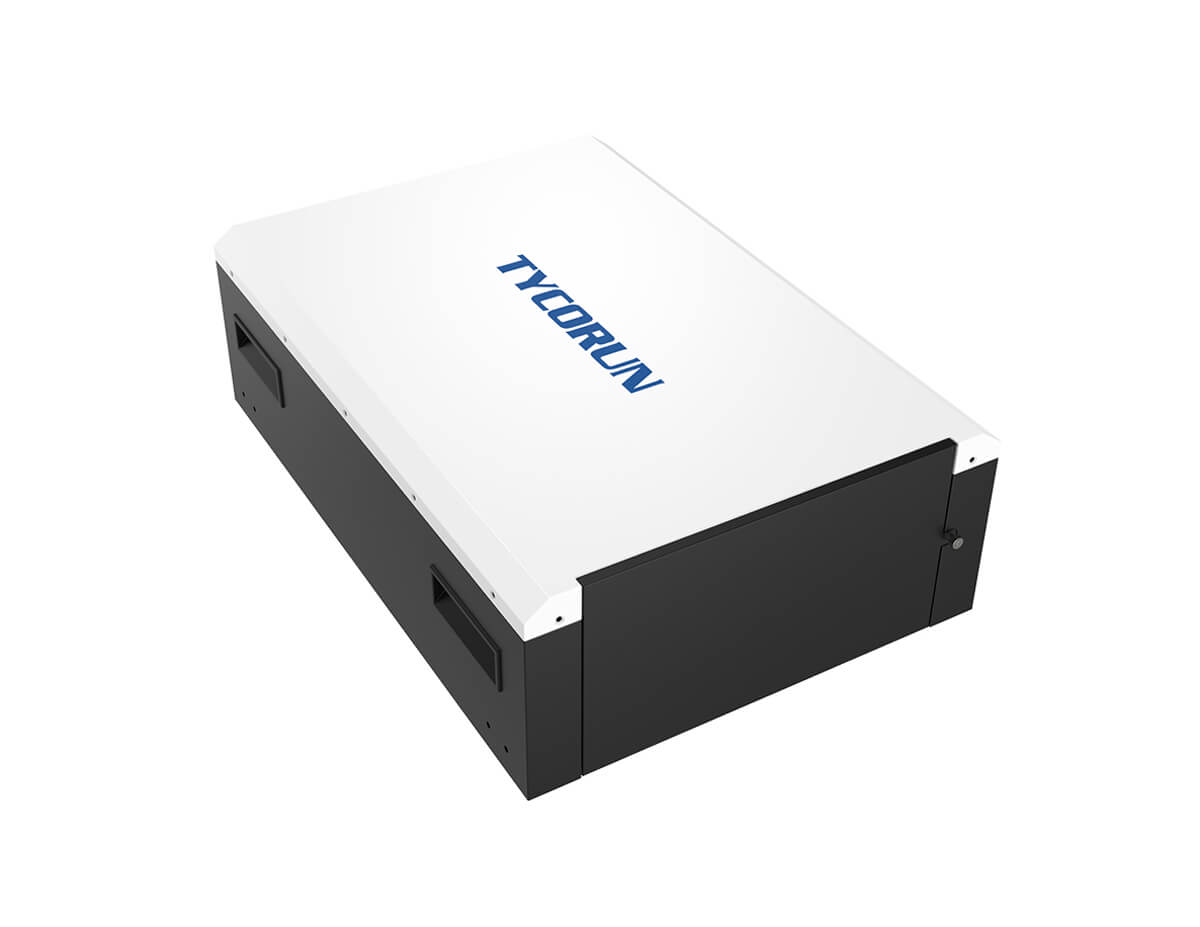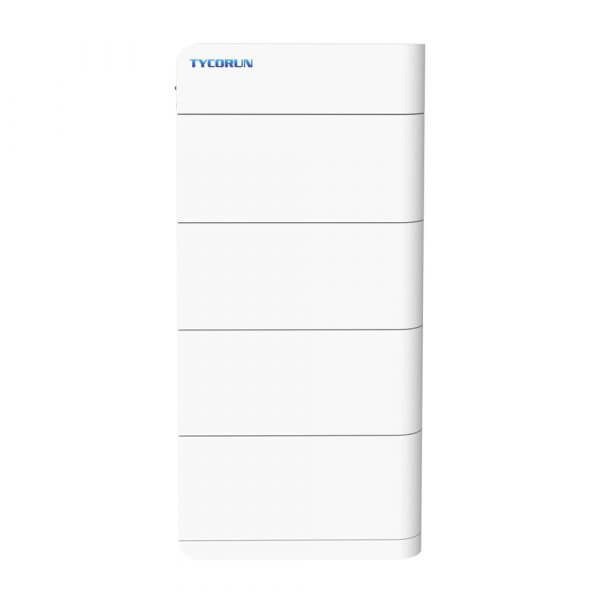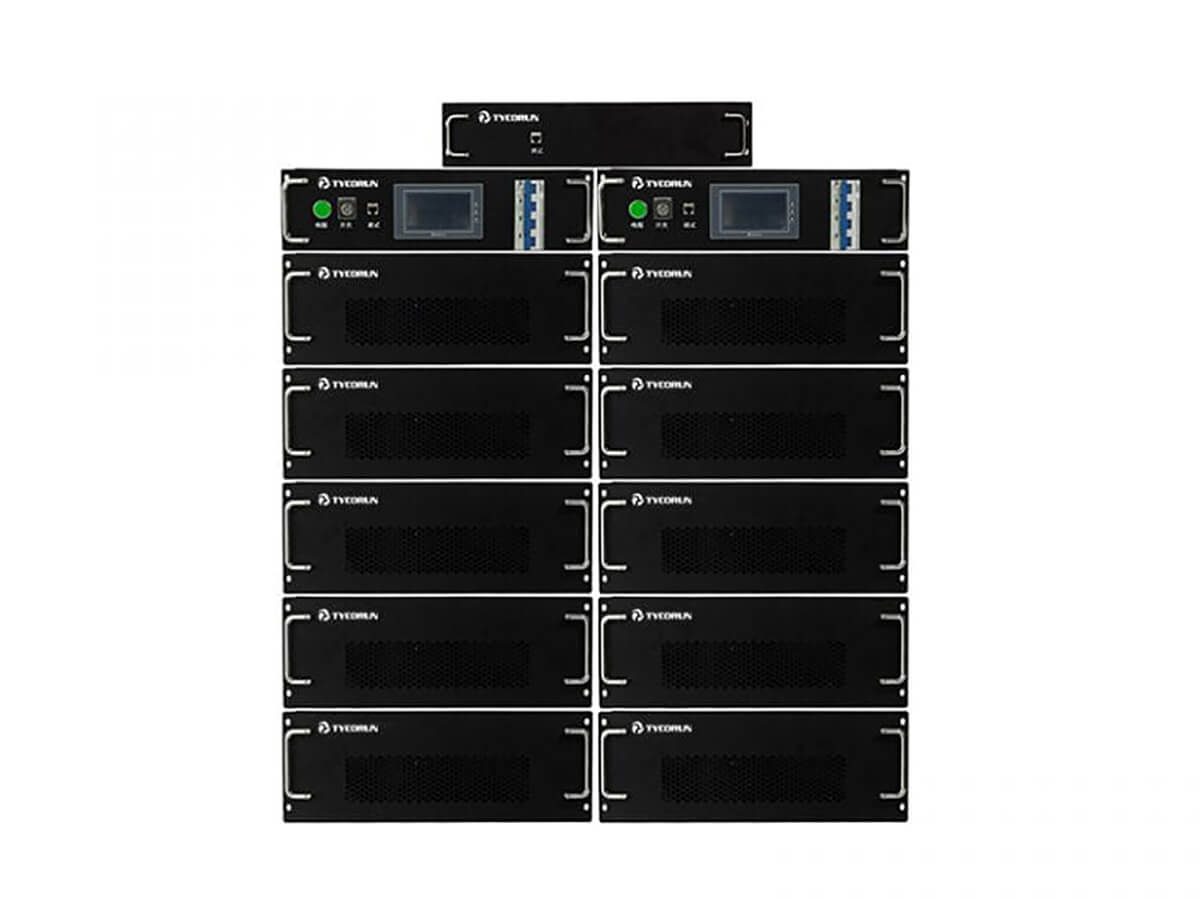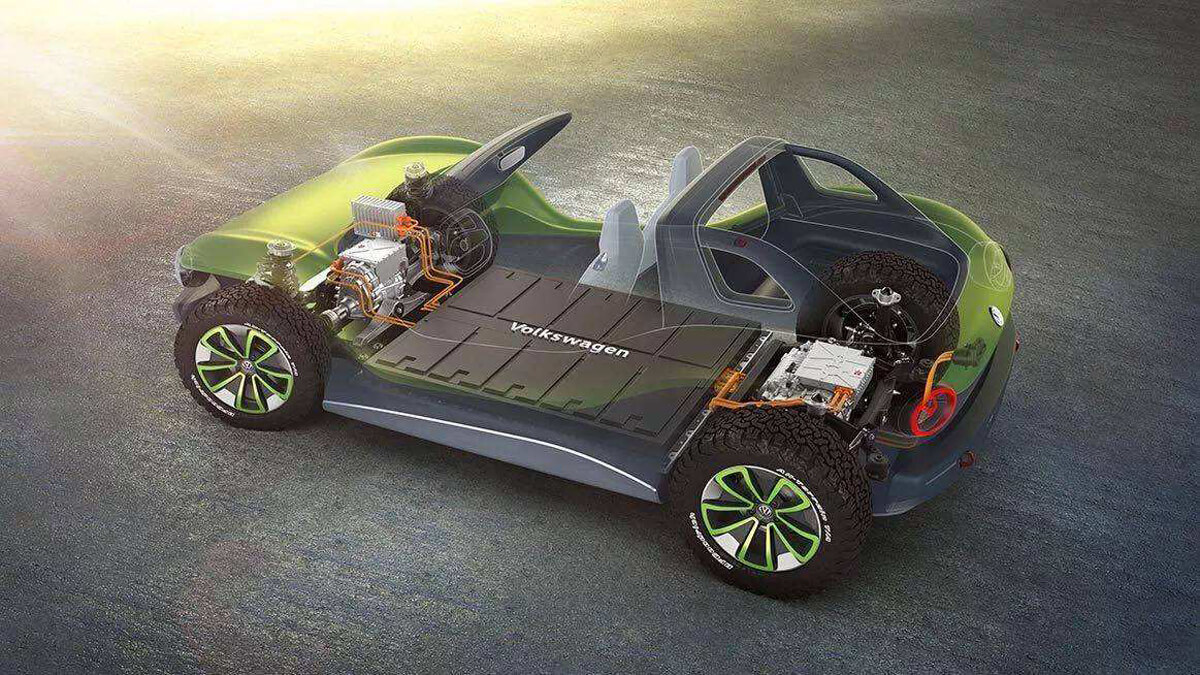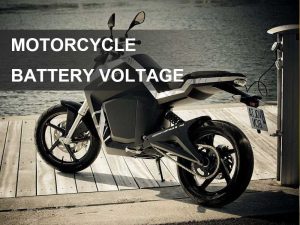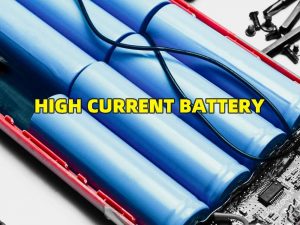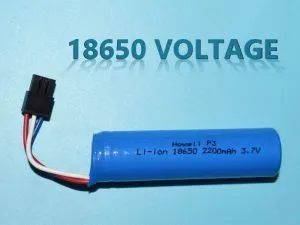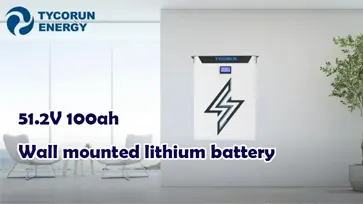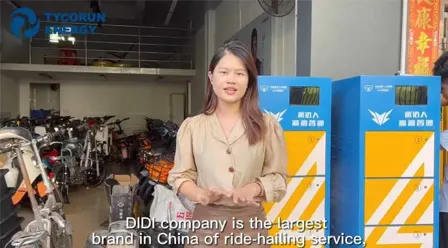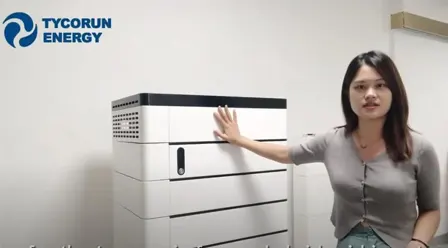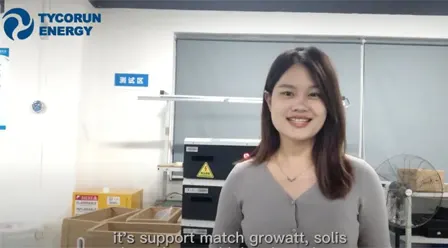The ultimate energy source: high voltage battery
High voltage lithium ion battery factories
15-year professional high voltage lithium ion battery manufacturers, 10-year warranty on battery packs, using the best BMS protection board, protecting the high voltage lithium battery pack from overcharge, overdischarge, overcurrent, short circuit, etc, with excellent self-discharge rate. Configurable Bluetooth, can be connected in series and parallel. The heating function and other special functions can also be customized. Enough stock for 192v lithium ion battery.
-
energy storage battery
100kwh battery pack industrial and commercial battery
-
energy storage battery
200kwh battery commercial and industrial energy storage system
-
energy storage battery
TYCORUN ENERGY high voltage energy storage battery 20KWh
-
energy storage battery
TYCORUN ENERGY high voltage battery stacks 15KW
-
energy storage battery
TYCORUN ENERGY high voltage rechargeable battery 10KW
-
energy storage battery
TYCORUN ENERGY lithium ion battery high voltage 30kwh
-
energy storage battery
TYCORUN ENERGY lithium battery high voltage 25kwh
-
energy storage battery
TYCORUN ENERGY high voltage lithium battery 20kwh
The ultimate energy source: high voltage battery
- What is a high voltage battery
- Which cell and battery has higher voltage
- What is a high voltage battery system
- What is the typical voltage in a high voltage battery
- Application of high voltage batteries
- FAQs on high voltage battery
- Which vehicles use a high voltage battery
- Do high voltage batteries last longer

What is a high voltage battery
A high voltage battery is a battery with a relatively higher energy density than normal batteries. This energy density results in a higher capacity for energy storage. Due to this increased energy density, these batteries can charge and discharge a lot faster than other batteries, giving them more stable charge cycles and longer battery life. As a result of the high voltage, these batteries can also deliver quick surges of electricity on-demand, which in general applications is preferred as present-day equipment requires a fast response battery.
Higher voltage batteries are more efficient compared to normal batteries in that they can charge at relatively low currents which do not affect the charge time or cycle. Adaptability to low current also protects higher voltage batteries from overheating and enables improved energy retention and storage.
Which cell and battery has higher voltage
After knowing what a high voltage battery is, the question arises which battery has the most voltage and why. Compared to others, Lithium high voltage(LiHv) battery cells have a higher voltage ratio. These lithium cells allow the battery’s charge to be cut off at a much higher voltage between 4.35V to 4.45V. Normal voltage cells have an average voltage of between 4.0V to 4.2V which might not seem a lot higher than normal voltage batteries. But taking into consideration that these battery cells will be added up to produce a single battery pack, the difference becomes apparent. The higher the weight and volume of a lithium high voltage battery the higher the voltage capacity compared to other batteries of the same size.
Therefore, lithium ion battery can answer which battery has the most voltage with it self. Lithium high voltage battery cells are also a lot more energy-intensive and effective than normal batteries in that they have more capacity and can release more energy per unit cell than other batteries.
What is a high voltage battery system
High voltage battery systems are commonly rated at 192v 200v 220v 384v 480v etc. These high voltage systems can function at low currents which do not affect the energy supplied or stored in the batteries. They have lower resistance and do not need large conductors or wires and as a result, allow energy to flow through the system more easily and effectively. The effective capacity and energy density of high voltage battery systems protect them from energy loss caused by resistance which is significantly higher in low voltage battery systems.
The cells and components of a high voltage battery system are usually connected in series to produce a higher voltage. These systems are commonly managed using an electronic battery management system or BMS. A BMS regulates the activities of the battery to prevent overheating, controls cell balancing, and manages the overall connections within the system.
What is the typical voltage in a high voltage battery
A standard high voltage battery has an average voltage of 192v. This higher voltage level is a product of the cumulative effect of numerous low voltage cells present in the modules which make up the battery pack. A typical high voltage battery is achieved by connecting several low voltage cells in a series with pole to pole connection to produce a battery with significantly higher voltage. A common 192v DC 100Ah battery could be made up of 60 individual 3.2v battery cells adding up to give it 192v. 192V 100Ah UPS lithium battery is suitable for large data centers and computer rooms.
This small high voltage battery could serve as a general-purpose energy storage system either as a solar energy storage unit or a UPS device. A master BMS device could be required to control the battery system and regulate the connective activities of all 8 battery cells. The BMS would function to regulate charging, charge cut-off level, and discharge frequency.
Application of high voltage batteries
High voltage battery for ups system
A top-grade high voltage battery could function as a powerful energy storage system such as a UPS device. A higher voltage battery would be perfect for a UPS device due to its low discharge rate and high energy density which would be beneficial for the kind of instant energy supply a UPS device offers.192v 100ah equipped with a 10KVA UPS machine to provide 2 hours of backup power, or a 20KVA machine to provide 1 hour of backup power. The UPS device would also have an in-built charger or rectifier to maintain the battery voltage.
An inverter would also be needed to provide nominal power while the battery is charging or on standby when full. A static switch would also be required within the device to transfer Power load to the high voltage battery with minimal disturbance. A smart BMS device would also be present to regulate the charge and discharge of the high voltage battery as well as monitor the rest of the system.
High voltage battery in-home energy storage system
The use of high voltage batteries in home energy storage systems as home battery backup is widely adopted for several obvious reasons. Generally, high voltage batteries are more efficient in terms of energy density and storage. We learned earlier in the article that the answer to which battery has the most voltage is lithium ion high voltage battery. A Lithium high voltage battery is particularly preferred due to its ability to supply more charge cycles throughout its lifespan compared to other battery packs.
The high charge and discharge rates of these batteries make them the best option for energy saving and storage use. A high voltage battery could be charged using a standard solar system with a solar panel, an inverter, and a charge controller. But a solar system isn’t the only available option for charging and stocking up energy in a high voltage system. Electricity from the public power grid could also be used in charging a high voltage battery to save up energy for such a time when the grid is no longer available or the owner chooses to opt-out.
TYCORUN ENERGY 409.6v high voltage energy storage battery 20KWh
Click on the picture to get more product information
High voltage battery used as power battery
The use of high voltage batteries as energy-saving systems only accounts for one aspect of their use, another widely adopted use for these high-efficiency batteries is constant power supply. The growing popularity of Electric vehicles like cars and motorcycles are utilizing high voltage batteries as effective power sources. The EV industry particularly adopts the use of Lithium high voltage batteries for their unique charge cycles which in a standard electric car that can be between 2000 to 3000 charge cycles or more. The application of voltage regulators in charging high voltage batteries in EVs could effectively increase the possible charge cycles by preventing 100% charge and 0% depletion.
The particularly high energy density of lithium high voltage batteries provides instance release of energy enabling the vehicle to accelerate with immense speed and power. Some electric cars have recorded 0 to 60 mph accelerating in under 2 seconds using a lithium high voltage battery, a speed that rivals some of the best combustion engine cars.
A high voltage batteries also allows charging using low currents which effectively reduces overheating of the battery pack and allows for better energy retention and release.
FAQs on high voltage battery
Is a higher voltage battery better
High voltage batteries are a better choice compared to low voltage batteries for several different reasons which mitigate the higher cost of these batteries. High voltage batteries deliver more energy per charge cycle due to their high energy density and low discharge rate.
These batteries also have better cooling tendencies and heat reduction properties over low voltage batteries when charged with the same current. Low charge currents which would cause low voltage batteries to overheat and degrade would have little to no effect on high voltage batteries.
These high voltage batteries could also be built and function within a system with small conductive materials whilst low voltage batteries would require larger conductive materials to increase low currents in order to charge properly without overheating. Lithium high voltage batteries also have no “Memory effect” which is a degrading process whereby a battery periodically reverts to a lower capacity as a result of partial charge and discharge cycles. Low voltage batteries are plagued with this effect and would eventually lead to early battery degradation and a short lifespan.
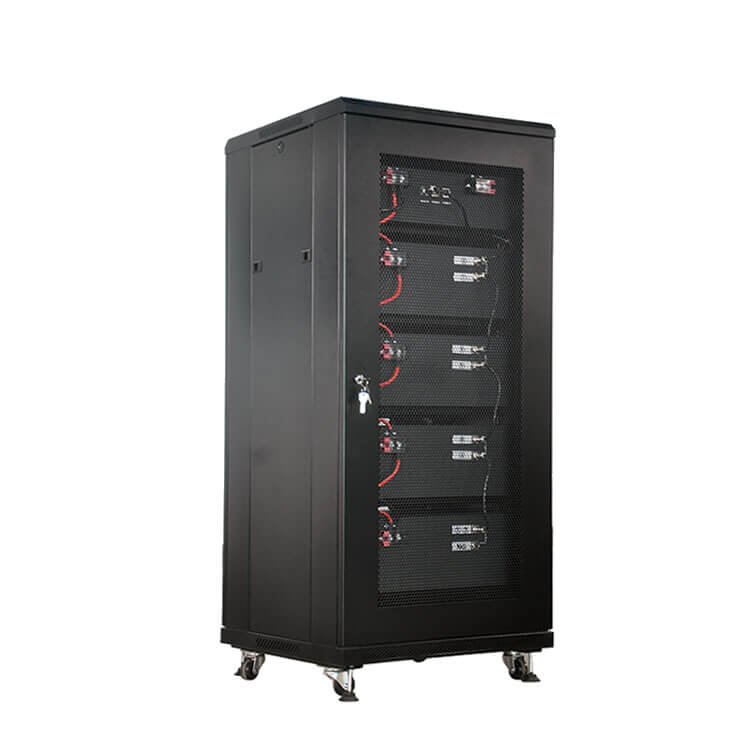
Click on the picture to get more product information
What is the most powerful battery in the world
This question is similar to which battery has the most voltage at some points. Lithium high voltage batteries are considered the best batteries in use in the world. Their adoption in major home storage systems and the electric car industry is a testament to the unrivaled efficiency of these batteries. They have some of the highest densities of any battery offering up to 265 Wh/kg giving them a powerful energy reserve pack. Lithium high voltage battery cells can also deliver upwards of 3.8v which is more than 3 times the cell voltage of Nickel-Cadmium and almost twice that of Lead-Acid batteries. This gives Lithium high voltage batteries a higher power output for just about any device or machine.
Lithium high voltage batteries also have one of the lowest self-discharge rates making them significantly more power-efficient in energy retention.
Do bigger batteries have more voltage
Under the premise that the battery types are the same and the capacities are not much different, the answer to do bigger batteries have more voltage is yes.
Typically, a high-voltage battery means that multiple cells in a battery pack are connected in series to achieve a high voltage. So the higher the voltage, the more cells there are in the battery pack and the heavier the battery. But if you compare lead-acid batteries with lithium-ion batteries at different voltages, there’s no way to reply do bigger batteries have more voltage. Due to the low energy density of lead-acid batteries, they are large and heavy compared with lithium batteries of the same specification. In addition, in applications with high capacity requirements, there are also many cells in parallel to increase capacity rather than being connected in series, so the mass is heavy but the voltage is relatively low. So we should say “it depends” to answer the do bigger batteries have more voltage question.
What is the difference between high voltage and low voltage batteries
High voltage batteries have their voltage at around 192 volts while low voltage batteries keep their voltage below 192 volts. In a low voltage battery system, cells are connected in series or linked in a parallel connection while high voltage batteries achieve a higher voltage connected in series. Due to the lower voltage of low voltage batteries, they are considered safer to work with as opposed to the higher voltage level of high voltage batteries that require professional handling.
High voltage batteries have a higher charge and discharge rate as opposed to low voltage batteries making them more efficient and giving them a longer lifespan. High voltage batteries can deliver fast energy surges on-demand for high-performance equipment and electric vehicles, unlike low voltage batteries that can’t handle quick energy surges. High voltage batteries also do not require larger conductors due to their high voltage range while low voltage batteries require large-high-quality conductors to supply the high current needed for proper charging.
Which vehicles use a high voltage battery
High voltage batteries have been widely adopted for use in hybrid cars, electric cars, and electric motorcycles. Which battery has the most voltage for vehicles? In particular, lithium high voltage batteries have been used in a large percentage of EVs in the world. The high energy density and rechargeable nature of these batteries make them perfectly suited for use in battery-powered cars and motorcycles. All Tesla cars use a lithium high voltage battery as their power source and so far have been the most efficient and successful in the EV market.
Hybrid cars also make use of these high voltage batteries as an energy storage unit charged using internal combustion engines. In these hybrid cars, the battery is charged during regenerative braking, this process involves a transfer of power when the driver stops accelerating, the available energy is then transferred and used in charging the battery. The magnetic force generated through the charging process then initiates the brakes, regenerative braking. The Hyundai IONIQ Hybrid and the Toyota Yaris are perfect examples of hybrid cars with high voltage batteries.
Do high voltage batteries last longer
As established, high voltage batteries have a higher density, fast charge, and discharge rates but these features don’t just ensure efficient power output but also a longer lifespan. The higher number of charge cycles a high voltage battery can deliver and the reduced chances of overheating and degradation gives it a much longer lifespan compared to other batteries.
A high voltage car battery for example can offer up to 100,000 miles or an 8-year long life span, a feat low voltage batteries cannot achieve.
High voltage batteries may be more expensive or slightly larger than low voltage batteries but they ensure more energy efficiency in whatever system you intend to use them.
Professional China Lithium Battery Companies
As a professional China lithium battery companies, TYCORUN ENERGY Adopt AAA Lithium ion battery cells design and production, provides upstream suppliers consultant for your lithium ion battery pack solutions.
Safety lithium battery pack high cost-effective, up to 10% – 25% cost savings.
FAQ About Buying Lithium Batteries
Most common applications for lithium battery
Lithium battery is widely used in many industries, ranging from powering the vehicles, scooters, bicycles to energy storage in home use, commercial use and outdoor power supply, etc. Generally speaking, lithium ion battery manufacturers make 2 kinds of lithium batteries: ternary lithium battery is applied for powering to move because of its high energy density and discharge rate, while LFP lithium battery is more popular with energy storage for its stable chemistry components and longer cycles. Some of the most popular application of lithium battery cover EV, RV, golf cart, forklift, camping power supply, kayak, scooter, solar power system, home Energy storage system, UPS Data center, telecom and IT backup, Industrial Equipment, etc.
What Factores should you Consider When Buying lithium ion battery?
Professionals from lithium ion battery manufacturers advise you that you need to provide the following information when buying lithium batteries. you need to provide the following information:
Rated voltage(V)
Operating voltage range(V)
Capacity(Ah)
Charging current (A)(Rated current/ Maximum continuous current/Peak current)
Discharge current (A)(Rated current/Maximum continuous current/Peak current)
whether it needs to be in series or parallel, and if so, how many in series or parallel.
Our lithium ion battery factory engineers will recommend the most suitable and cost-effective lithium ion battery packs
What certifications are required for lithium batteries?
Commonly used certifications for lithium batteries are dedicated for transportation and certification of product quality. Not too many lithium ion battery manufacturers will apply for those certifications because of the high cost. Fortunately we have some of them and in the future we will apply all of them for our worldwide market. The certifications as per below:
Transportation unique qualification: generally MSDS, UN38.3, report for sea as well as air transportation of goods
MSDS is a chemical safety and security technical spec, a file utilized by chemical producers and importers to clarify the physical as well as chemical residential properties of chemicals as well as the possible damage to the health of users.
The UN38.3 is specifically created by the United Nations for the transport of lithium battery by sea or by air.
Identification and classification report for sea and air transport of goods: It is a report that needs to be provided when batteries and products with batteries are transported by air or by sea.
Product quality certification: Different countries have different product quality certifications. Commonly are:
European Union: CE, ROHS
North America: FCC, UL
India: BIS certification
How to ship the lithium ion batteries?
For purchases from China lithium ion battery factory, We have three shipment way to ship out the goods,
Option 1: SEA WAY, we can ship out the lithium battery to every country via sea way. And We have UN38.3 & MSDS certification. Here’s the range time for the shipment date.
USA: 30-40 days
Europe: 30-40 days.
Australia: 35-45 days.
Option 2: AIR WAY, If the single parcel less than 68KG, that we can use the air way.
USA: 12-15 days
Europe: 12-15 days.
Australia:15-18 days.
Opyion 3: TRAIN WAY, We can ship out the lithium battery to Europe via Train way.
USA: 30-40 days
Europe: 30-40 days.
Australia: 35-45 days.
Because the lithium battery material is dangerous material. Our lithium ion battery suppliers have passed UN38.3 & MSDS & Dangerous packing certificate, As a lithium ion battery manufacturer, TYCORUN® can ship out the lithium battery!
Receive an accurate quote within 3-5 days when you fill out this form. Or, give us a call: +1(405) 283-8396
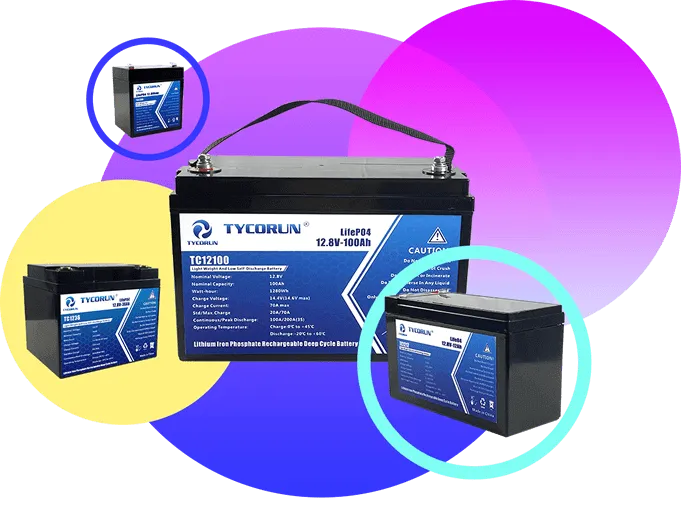
About high voltage lithium ion battery manufacturers
TYCORUN® has more than 15 years of experience in the high voltage lithium battery suppliers and is a Chinese high-tech enterprise that develops, produces and sells various new energy battery products.
12V lithium ion battery high voltage production capacity accounts for 80% of our lithium battery high voltage manufacturing products
High quality assurance
TYCORUN is determined to become a leader in the lithium battery companies, quality is our culture!
Professional manufacturers
With lithium battery high voltage as the core, integrating channels and technologies
Factory wholesale price
We promise to let customers get the most cost-effective lithium battery high voltage products
Reliable Service Assurance
Provide high voltage battery OEM, ODM, 1 MOQ.Full Set of Certificate
Video Gallery
Lithium ion Battery News

One-stop Africa battery swap solution – new energy electric motorcycle intelligent operation management
This article will cover the current situation of Africa’s market, the rapid development of the Africa battery swap industrial chain and Tycorun’s battery swap solution.

Top 6 high-rate cell companies in China
Among the manufacturer producing high rate battery, BAK, EVE, LISHEN, MOLICEL, SAMSUNG SDI, and SunPower stand out for their outstanding products.

Top 10 solid state battery manufacturers in China
China’s solid state battery development is in the accelerated stage, the top 10 solid state battery manufacturers mainly have the following

New Ganfeng battery – ultra safe semi-solid battery with high performance
This article details Ganfeng Lithium’s solid-state battery development, technological innovations, and the performance of the ganfeng battery in safety tests.
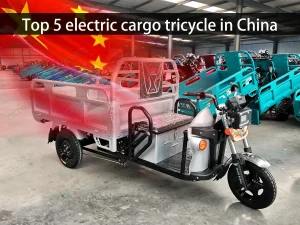
Top 5 electric cargo tricycle in China
This review presents the top 5 electric cargo tricycles in China, featuring detailed specifications and performance insights. Evaluating criteria such as load capacity, battery efficiency, and safety features, this guide assists buyers in selecting the ideal tricycle based on individual requirements.
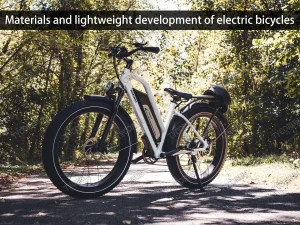
Materials and lightweight development of electric bicycles
This article provides an insightful exploration into the development of electric bicycles, focusing on advancements in materials and lightweighting techniques. It delves into the historical evolution of electric bicycles, analyzes various bicycle frame materials, discusses the development of electric power assist technology, and offers an overview of the electric assist bicycle market. Through detailed examination and analysis, it highlights the importance of lightweighting for electric bicycles and identifies key trends shaping the industry’s future.


